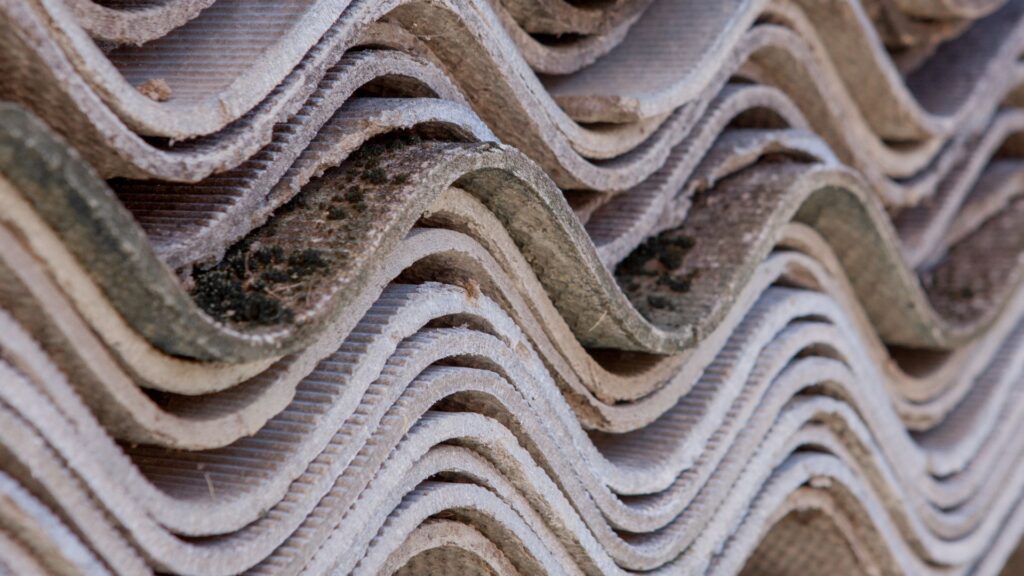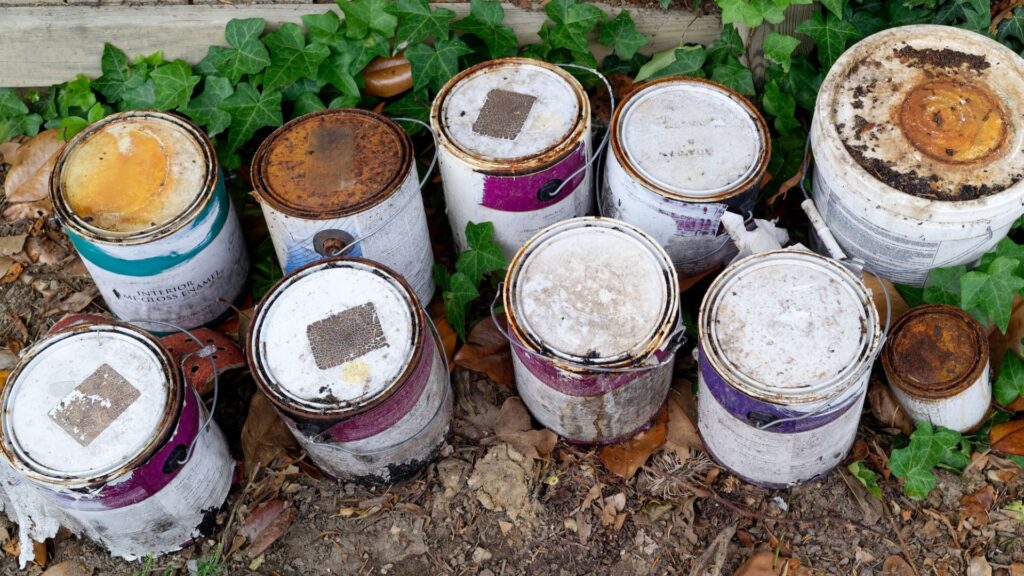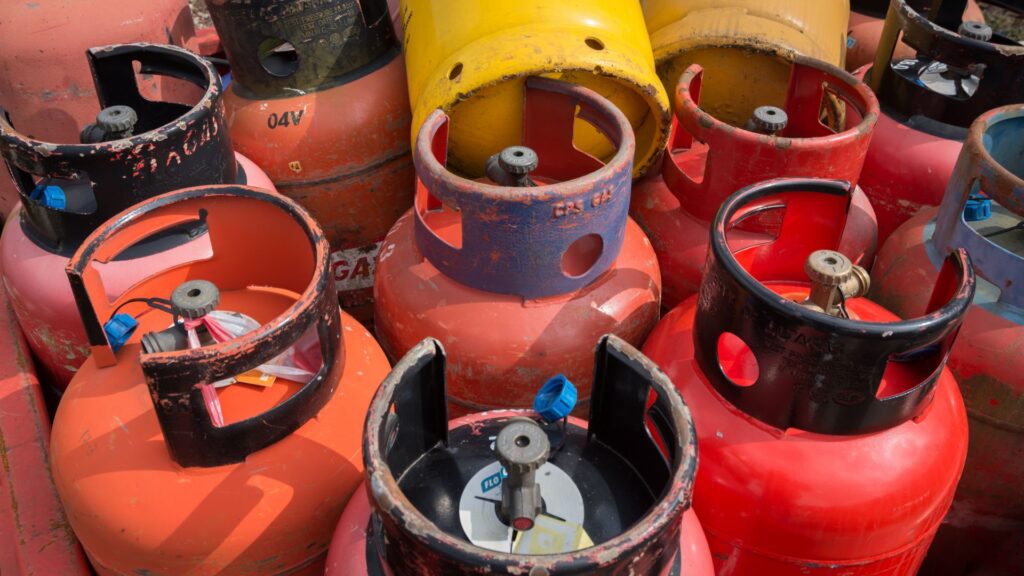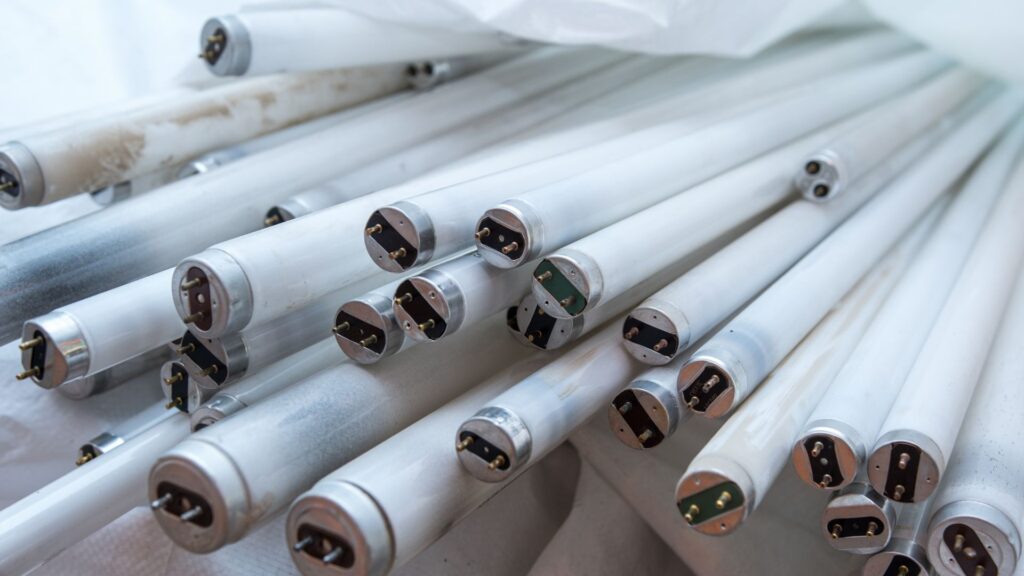Why You Should NEVER Put Lithium-Ion Batteries In A Skip
Improper disposal of lithium-ion batteries is a growing crisis in the UK... Read More
Skips offer a convenient solution for waste clearance. But not everything belongs in them.
Many everyday items can pose serious risks to workers and the environment if disposed of incorrectly. If chucked into a skip, things like chemicals, flammable materials and batteries can lead to devastating fires, environmental damage and even legal penalties.
In this blog, we’ll shine the spotlight on some of the most common things that should never be placed in a skip or any other general waste facility, why, and how to safely dispose of them instead.
Let’s recap. Can you remember what materials are a firm NO when it comes to filling a skip?
Here are the main categories of hazardous waste and why they’re on the ‘no-skip’ list.

Asbestos is acknowledged as a severe health hazard. Disturbed fibres in the air pose a risk to human health that can lead to respiratory issues and diseases. Asbestos therefore requires specialised handling for removal.

Most paints contain toxic substances like solvents and heavy metals. Skips cannot take paint because throwing paint into a landfill means these substances would leach into the soil and groundwater, causing harm to the environment and the wildlife that depends on it.
Certain types of paint are also flammable, meaning they are a fire risk when mixed with other waste materials.

Even when gas bottles appear empty, they can be extremely dangerous. If a gas bottle containing pressurised gas becomes damaged, punctured or exposed to heat, it can explode or release the gas inside. Any remaining gas can ignite and cause fires and explosions.

Fluro tubes often contain mercury, a toxic substance for humans and the environment. When a tube breaks this hazardous material is released as an airborne vapour, contaminating the air, soil, and water.
We all have a “Duty of Care” when it comes to waste disposal. Whether it’s a skip in Essex or your kitchen bin, the effects of improper disposal of hazardous items extend beyond your actions to have serious consequences down the line.
Incorrect disposal of hazardous items can lead to fires at waste facilities, putting staff at risk and requiring manpower to extinguish.
Landfill contamination from hazardous materials can mean toxic substances seep into water sources, affecting aquatic life and entering the food chain, eventually impacting humans.
Not disposing of hazardous items properly can also directly bring harm to people, like Kingdom Recycling staff and waste workers. Toxic substances can cause respiratory issues, nerve damage, and even long-term neurological effects for those exposed.
For businesses, improper disposal can land them large fines and legal consequences. UK businesses must adhere to extensive waste rules such as the Hazardous Waste Regulations and failure to comply could mean prosecution, financial penalties and up to 2 years of imprisonment depending on the severity of the violation.
Hazardous substances pose a significant risk to you, us and the environment. So how can you dispose of them safely?
Many retailers of lithium-ion batteries have take-back programs, enabling consumers to return the product to where it came from for safe disposal.
Some council-run recycling centres accept lithium-ion batteries and have a dedicated, monitored area for safe storage and, later, disposal.
Find an Essex County recycling centre here and get in touch with them for confirmation before you make the trip.
Supermarkets, libraries and some shops in Essex host battery recycling bins that can be accessed throughout the week to get rid of lithium-ion batteries whilst you’re out and about.
These items need to be taken to the appropriate section of your local recycling centre for correct disposal. Specialist disposal companies can also be utilised; their expertise ensures these hazardous items can be carefully taken away and disposed of safely.
Asbestos is not accepted in Essex kerbside collection or at any Essex County Council recycling centre. Residents can request a collection of the substance if it is from their household; a subsidised collection is available for each household in Essex every financial year.
Plasterboard disposal is restricted when it comes to skip hire in Essex but specific skip bags and skips are available for proper disposal of the substance.
Incorrect and irresponsible handling of potentially toxic substances can lead to fires and explosions, bringing harm to staff, damaging infrastructure and costing the UK millions to deal with.
Don’t chuck hazardous items in your skip! Proper waste disposal of hazardous substances prevents harm to workers like us, the community and the environment. Drop your lithium-ion batteries off at recycling points, utilise your local recycling centre and stay responsible.
Got an unusual item that you’re not sure about? Looking for a reputable skip hire in Essex? Kingdom Recycling is here to assist with your questions. Get in touch today.